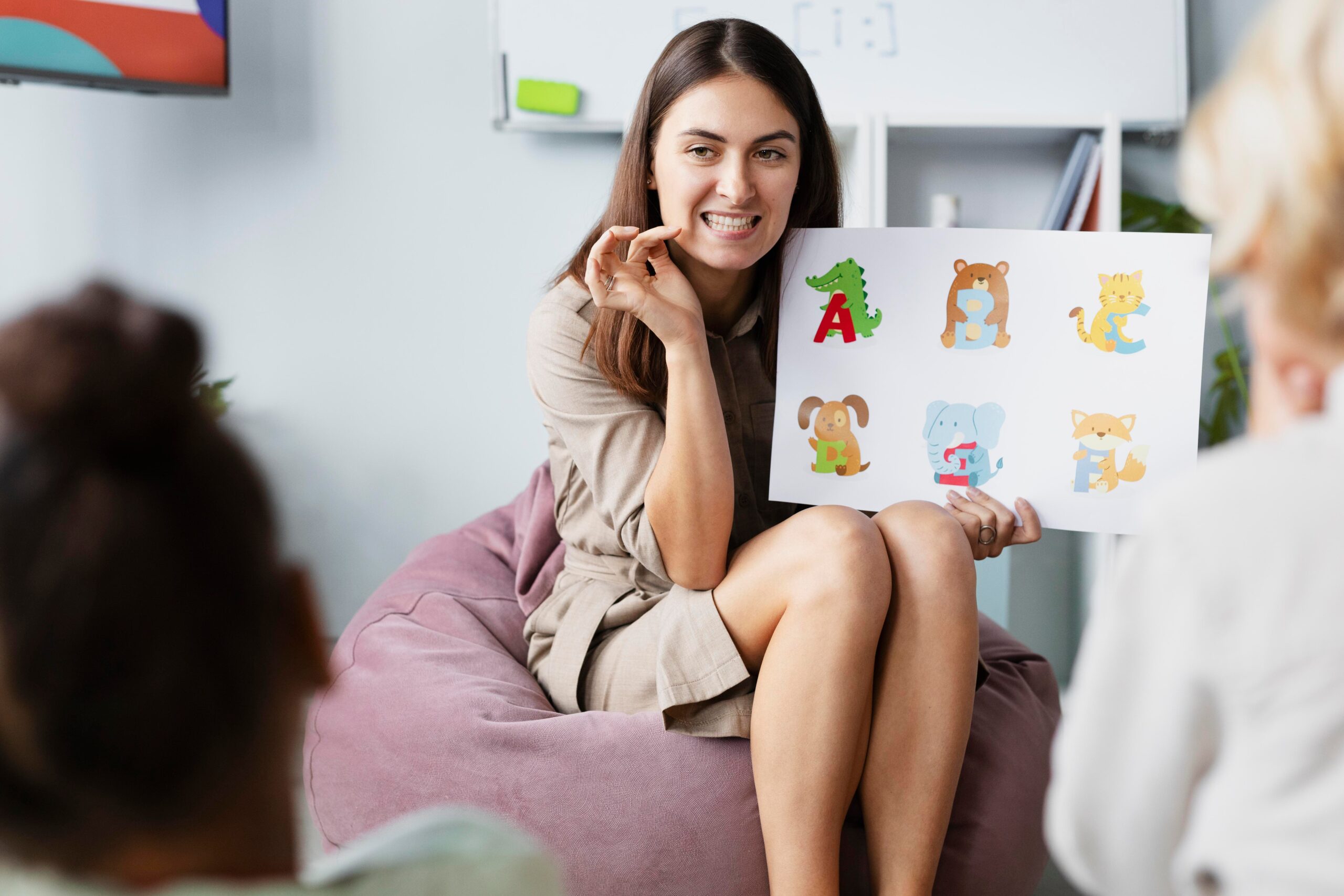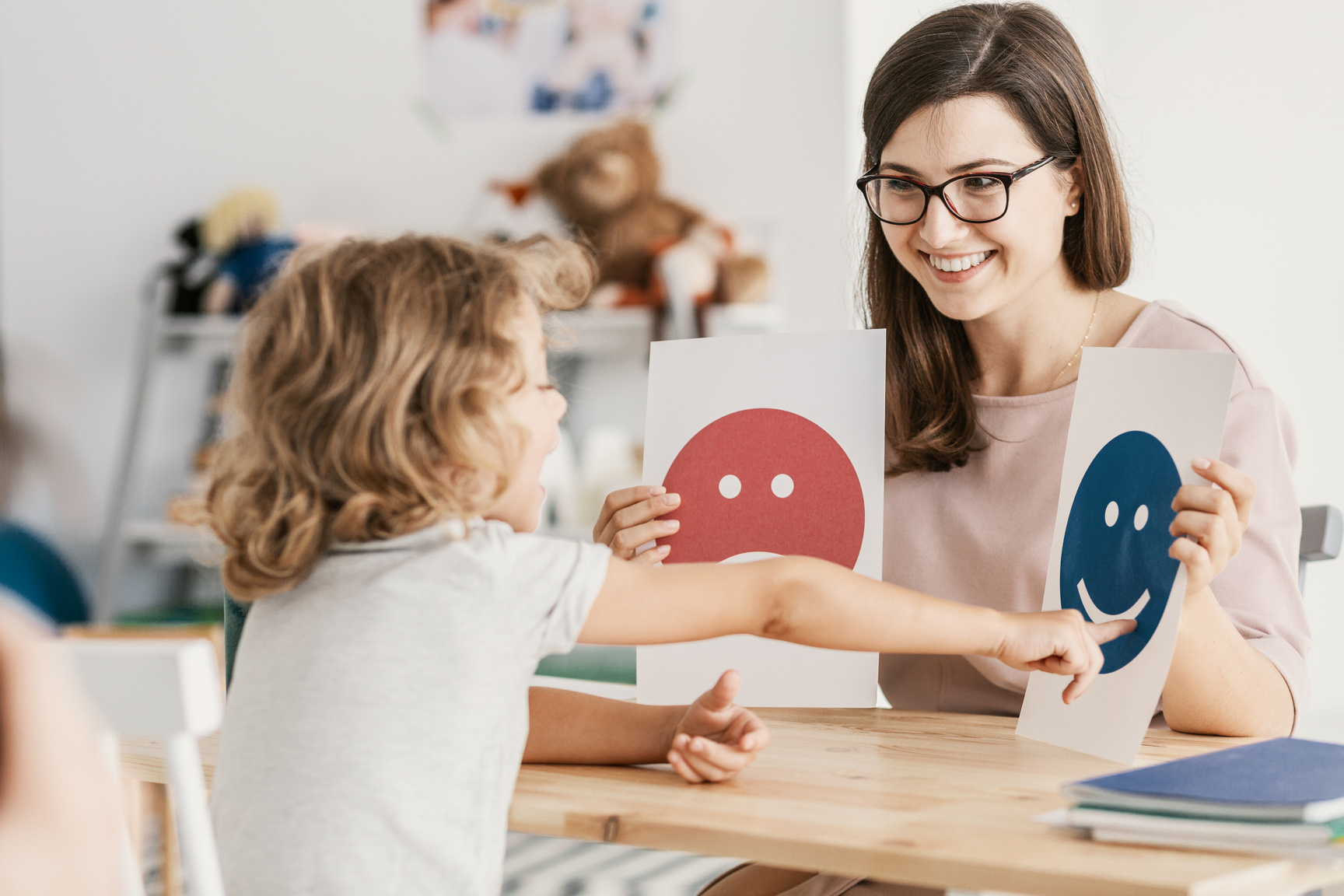Parents and caregivers of non-verbal children with autism usually wonder how their child can develop essential social skills and build meaningful connections with others. While communication might not happen through speech, non-verbal children are still capable of learning how to interact, engage, and connect with others in their unique ways. Applied Behavior Analysis (ABA) therapy offers structured support that can help children develop these important skills, even without verbal language.
Let’s take a closer look at how ABA therapy social skills programs are designed to meet the unique needs of non-verbal children and support their growth in meaningful social interactions.
Understanding Social Challenges in Non-Verbal Autism
Children with non-verbal autism often experience challenges related not just to speech, but also to understanding and using social cues. These difficulties can include avoiding eye contact, limited facial expressions, or trouble initiating and maintaining interactions. This doesn’t mean they lack the desire to connect, but that they need specific, individualized tools and support to do so effectively.
Nonverbal autism therapy takes these factors into account, focusing on the strengths of each child while targeting the specific areas where support is needed. Since every child is different, therapy is tailored to the individual, and this includes the way social skills are taught and reinforced.
How ABA Therapy Targets Social Skill Development
ABA therapy focuses on observable behavior and uses structured teaching, reinforcement, and repetition to build new skills. In the case of social skills for autism, ABA therapists break down complex social behaviors into smaller, teachable steps.
For non-verbal children, this can include:
- Learning how to gain someone’s attention using gestures, pictures, or devices
- Practicing turn-taking during play
- Using alternative forms of communication to express wants and needs
- Recognizing emotions in others through facial expressions or tone of voice
- Building tolerance for social situations, such as group activities or shared spaces
The goal of social skills training in autism programs within ABA is not to change who the child is but to help them navigate the world more comfortably and connect with others in ways that make sense for them.
Using Alternative Communication to Build Connection
One of the first steps in supporting non-verbal children is providing them with a reliable form of communication. This can be through sign language, Picture Exchange Communication System (PECS), or Augmentative and Alternative Communication (AAC) devices.
Once a child has a way to communicate, ABA therapists use that mode to build social autism skills such as making requests, initiating greetings, or sharing interests. These are all foundational to more complex social interactions later on.
For instance, a child on the spectrum may start by handing a picture of a toy to an adult to request it. Over time, that action can grow into a back-and-forth exchange, where the child uses the picture to request, then waits for a response, then reacts to that response – all elements of a social interaction.

ABA Therapy Social Skill Programs in Action
ABA therapy social skills sessions often look different for non-verbal children than they do for their verbal peers, but the core goals are the same: building meaningful interaction.
In a one-on-one setting, a therapist may start by teaching the child to respond when someone calls their name. Once that is established, the next step may be maintaining joint attention where the child and therapist both focus on the same toy or activity.
In group settings, therapists may use structured games to teach concepts for social skills training for autism, like taking turns, waiting, or sharing. These are practiced repeatedly in low-pressure environments, with prompts and reinforcement used to help the child succeed and feel safe during the learning process.
Therapists also work closely with families, so these skills carry over into daily life. Parents are coached on how to recognize opportunities to support social development at home during meals, playtime, or family outings.
Generalizing Skills Beyond the Therapy Room
Learning a skill in therapy is only half the battle, though. The other half is helping the child apply those skills in real-world settings. This is especially important when building social skills for autism, since many children may act differently in therapy than they do at home, school, or in the community.
ABA therapists focus heavily on generalization, which means teaching the child to use new skills across different people, places, and situations. For a non-verbal child, this might look like:
- Using their AAC device to greet a sibling
- Taking turns with a peer during recess
- Requesting help from a teacher using PECS
This type of support helps build confidence and independence. It also encourages natural social interactions, where the child can use what they’ve learned in meaningful ways.

Supporting Social Growth at Home and in the Community
While therapists play a key role in teaching social autism skills, parents and caregivers are essential partners in the process. The more opportunities a child has to practice social interaction, the more likely they are to grow in this area.
Here are a few ways families can support social skill development at home:
- Create opportunities for interaction: Play turn-taking games, sing songs with gestures, or do simple group activities with siblings.
- Use visual supports: Visual schedules, social stories, and picture cards can help prepare a child for social situations and reduce anxiety.
- Model social behaviors: Non-verbal children learn a lot by watching others. Modeling eye contact, facial expressions, and gestures can be powerful teaching tools.
- Celebrate small successes: A glance, a smile, or a new attempt at communication may seem small, but they are important milestones worth acknowledging.
With consistent support across environments, ABA therapy social skills become part of the child’s everyday life, not just something practiced in therapy.
Building Bridges without Words with ABA Therapy
Helping a non-verbal child with autism build social skills takes time, patience, and the right approach. ABA therapy offers a structured, evidence-based path for developing these skills in a way that honors each child’s unique needs.
By breaking down complex social behaviors into manageable steps, using individualized supports like AAC or PECS, and partnering with families every step of the way, ABA therapists like the ones at Empower MBA make it possible for non-verbal children to build genuine connections with others.
Whether it’s learning to share a toy, ask for help, or simply engage with another person, these moments add up, and they matter. Through consistent, thoughtful nonverbal autism therapy, every child can be supported in finding their voice, whatever form that may take.
At Empower ABA, we believe every child deserves the chance to connect. Our experienced team specializes in helping children with autism build meaningful social skills through personalized, evidence-based ABA therapy.
Contact us today to learn how we can support your child’s journey!

